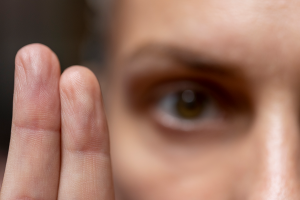Last updated: February 6, 2026
Whether the loss stems from the death of a loved one, the end of a relationship, or another significant life change, the emotional weight of grief can feel overwhelming. Understanding what therapy is best for grief can provide a clear path to healing and recovery.
Understanding Grief and Its Impact
Grief is more than sadness; it encompasses a range of emotions such as anger, guilt, confusion, and even physical symptoms like fatigue or insomnia. Left unaddressed, prolonged or complicated grief can lead to serious mental health issues, such as depression or anxiety. Seeking professional help can make a profound difference in managing these feelings and finding a way forward.
What Is the Best Therapy for Grief?
The best therapy for grief often depends on the individual’s needs, personality, and circumstances. Below are some of the most effective therapeutic approaches:
Cognitive Behavioral Therapy (CBT)
CBT is widely regarded as one of the best therapies for grief, especially when it becomes complicated or prolonged. This therapy helps individuals identify and challenge negative thought patterns, replacing them with healthier coping mechanisms. For example, someone might struggle with guilt or self-blame after a loss, and CBT can help reframe those thoughts in a more constructive way.
Grief Counseling
Traditional grief counseling provides a safe space to express emotions and process the loss. A grief counselor can offer support and guidance tailored to the grieving individual, helping them work through the stages of grief and adapt to life after the loss.
Acceptance and Commitment Therapy (ACT)
ACT focuses on accepting the pain of grief rather than fighting it, encouraging individuals to live a meaningful life despite their loss. By focusing on mindfulness and value-driven actions, ACT can help people integrate their grief into their lives in a healthier way.
Group Therapy
Sharing experiences with others who have also experienced loss can be incredibly therapeutic. Group therapy provides a sense of community and mutual understanding, which can be especially helpful for those feeling isolated in their grief.
Eye Movement Desensitization and Reprocessing (EMDR)
EMDR therapy is particularly effective for grief related to traumatic loss. It helps individuals process and reframe distressing memories, reducing the intensity of emotional pain associated with the loss.
Art and Expressive Therapies
Creative therapies, such as art therapy or music therapy, allow individuals to express emotions that may be difficult to put into words. These therapies can be particularly beneficial for children or individuals who struggle with verbal communication.
Choosing the Right Therapy for You
When determining what therapy is best for grief, it’s essential to consider your unique circumstances and preferences. Some people may find comfort in one-on-one sessions, while others benefit more from a group setting. Additionally, combining approaches—such as individual counseling with group therapy or incorporating mindfulness practices—can enhance the healing process.
It’s also important to choose a therapist experienced in grief and loss. A compassionate and understanding therapist can provide tailored strategies and support, making the journey through grief more manageable.
The Role of Self-Compassion in Grief Recovery
No matter which therapy you choose, self-compassion is a critical component of the healing process. Allow yourself to feel your emotions without judgment, and recognize that healing takes time. Grief is not a linear process, and setbacks are normal.
Final Thoughts
Finding the best therapy for grief involves exploring different approaches and finding what resonates with you. Whether it’s CBT, grief counseling, or a combination of therapies, the right support can help you navigate the complexities of loss and find a path to healing. Remember, seeking help is not a sign of weakness but a courageous step toward recovery and renewal.
Contact us to learn more about therapy for grief and loss.







